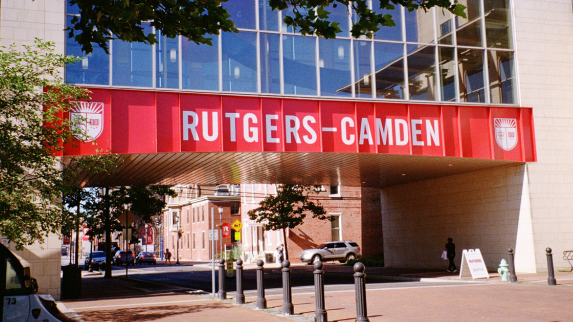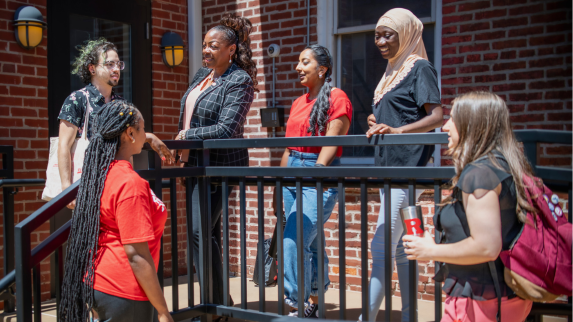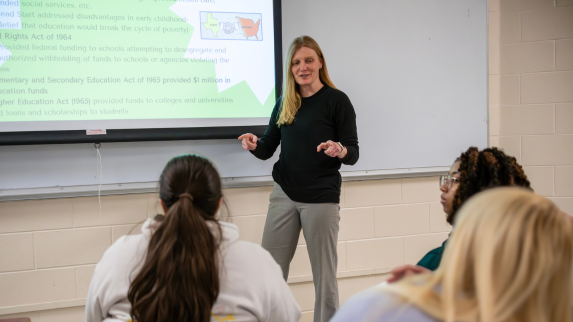Advancing Computer & Data Science
A journey spanning continents, decades, and technological revolutions has shaped the vision and leadership of Dr. Sunil Shende, who serves as both the Undergraduate Program Coordinator and Graduate Program Director for Computer Science and Data Science at Rutgers-Camden. From his early days at one of India’s most prestigious STEM institutions to his current role driving innovation and growth in sought-after fields, his story weaves together a passion for teaching, research, and program development. Dive into his reflections on academic milestones, groundbreaking research, and strategic plans for the future of these programs.
Guiding the Future of Computer and Data Science at Rutgers-Camden
At the moment, I wear two administrative hats: I am the Undergraduate Program Coordinator (UPC) and the Graduate Program Director (GPD) for the Computer Science department, as well as the Graduate Program Director of the interdisciplinary Data Science program. In my role as the UPC, I oversee many aspects of undergraduate student advising, including prerequisite overrides, transfer equivalencies and graduation certification. As GPD for two programs, my duties run the gamut from admission decisions to advising students, and to liaising with various participating departments and campus offices like the International Students Office, the Career Center, and the Graduate Admissions Office.
Our goal is to grow these graduate programs [Data Science and Computer Science] in a sustainable manner without compromising quality, ensuring our students become leaders and innovators.
Sunil Shende
Exploring the World Through Computer Science and Beyond
I obtained my undergraduate degree from the Indian Institute of Technology (IIT) in Kanpur, which is in northern India. I was fortunate to attend one of the most competitive and prestigious STEM institutions in India, and I am really grateful for the seminal education that I received there. I was in only the second graduating class from India (in 1984) in the field of Computer Science – it was a very young field back then, in India and elsewhere! Just imagine: email, the internet as we know it, laptops, the world-wide-web, cell phones – none of these existed when I first arrived for graduate school at the
University of Pennsylvania as an international student. In retrospect, graduate school was a heady, intellectually stimulating experience. I got opportunities to explore many different areas within Computer Science and even took courses outside the field, e.g., in linguistics and mathematical logic. Participating in conferences and research meetings, and spending time learning from amazing professors and fellow graduate students was instrumental in cementing an abiding passion for academic research and teaching. It wasn’t all work of course: I played league cricket in Philadelphia, started Penn’s first cricket team, learned to play squash, became a decent cook, attended concerts and performances, went on camping trips and hikes, and struck up wonderful, life-long friendships.
After I defended a dissertation on theoretical formalisms for natural language processing and graduated with a Ph.D. in 1990, my career path was pretty clear to me: I loved teaching and research and really did not feel like I belonged in industry. My first job was in academia: as a professor at the University of Nebraska in Lincoln. After spending a few years in Lincoln, I moved back to the East Coast, to Rutgers-Camden and have been here ever since!

Related to this Story:
Exploring the Boundaries of Computational Theory
I am mainly interested in algorithms, and specifically their theoretical analysis. However, fairly early on, I made the conscious choice of not sticking to just one narrow area of specialization. My research interests are fairly broad: parallelism in natural language processing; algorithms for network protocols; distributed algorithms for coordination problems like multi-agent search and pattern formation; game theory; the application of algorithmic data mining techniques in scientific computing etc.
The lack of a PhD program in Computer Science on the Rutgers University-Camden campus meant that most of my research was done in collaboration with academic colleagues outside the campus. With funding from the National Science Foundation, I have also been able to support some talented undergraduate and master’s students at Camden on various research projects.
Leadership for Tomorrow: Elevating Computer and Data Science
Both Computer Science and Data Science are heavily sought-after fields, and most research universities now have graduate programs in these areas. So there is a lot of competition among universities like Rutgers-Camden to attract students, especially international students, to their programs. Our plans for these graduate programs at Rutgers-Camden are to grow them in a sustainable manner without compromising quality, and in my role as Graduate Director, I strive to provide the direction and leadership that will make this happen. It means managing the admissions process with the intent of maintaining high standards for acceptance, and ensuring that our students, once admitted, get superior technical training towards becoming successful leaders, innovators and self-motivated learners. It also entails making efforts to gain more visibility for the programs in the region, which in turn can lead to better prospects for our graduates for finding good jobs and launching robust careers.
Spotlights & Stories

Want more stories like this? Spotlights and Stories highlights alumni, faculty, staff, and student experiences through stories, video, and voice. Learn more
Explore Graduate School Programs

Rutgers Graduate School-Camden offers 20+ graduate certificates, master’s, and doctoral programs across various disciplines, including biology, data science, creative writing, and psychology. We take pride in our academic diversity. Learn more
Former Students, Get Involved

Stay connected with Rutgers-Camden! Engage with former students, attend events, and support current students. Your involvement strengthens our community and helps shape future success. Learn more
